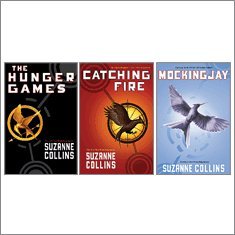I finally finished reading all the Percy Jackson books, and I’ve got to say, job well done. Although I personally did not relate to Percy Jackson, I found Rick Riordan’s use of voice captivating. Told in first person, you know who Percy Jackson is from the very beginning. The books are riddled with sarcastic and witty remarks and unexpected similes and metaphors, not to mention good ol’ fashioned imagery. Here’s a line I loved from the 5th book, The Last Olympian: “I hoped she wouldn’t get stuck. I couldn’t imagine how much Drano we’d need to un-stick a hellhound wedged halfway down a tunnel to the Underworld.” The reason Riordan’s voice is successful, though, is because he waits to throw out comments like this until you aren’t expecting them. They are not on every page. They creep up on you.
Another thing Riordan succeeds at is beginnings. He knows how to pull you in. Take another example from Book 5. Here’s the first line of the book: “The end of the world started when a pegasus landed on the hood of my car.” How can you not keep reading after a line like that?
As a series, these books were successful for many reasons:
- Percy Jackson – although I did not relate to him, his voice was witty and interesting. I wanted to keep reading to see what things would come out of his mouth next.
- Mystery – I know a lot of people frown up the use of prophecy to drive a story, but Riordan does it well, and, after all, these books are a retelling of Greek mythology, whose very existence relies on prophecy. Each book contains a prophecy, and the series is held together by one overarching prophecy that we don’t hear until the end of the final book. The use of a separate prophecy for each book gives each book a mystery that is solved by the end, but, because of the main prophecy, the reader wants to come back for the next book.
- The world – Riordan has created a believable world, where mythological creatures exist and the Gods live above the Empire State Building. Without a successful world, complete with an explanation for how monsters that were killed in Greek myths have returned and why humans don’t know that there are monsters, demigods, and satyrs running around, the book would not have succeeded.
All-in-all, this was a successful series that wrapped up nicely. If you are a writer for MG/YA, i highly recommend reading the series if you haven’t already.


